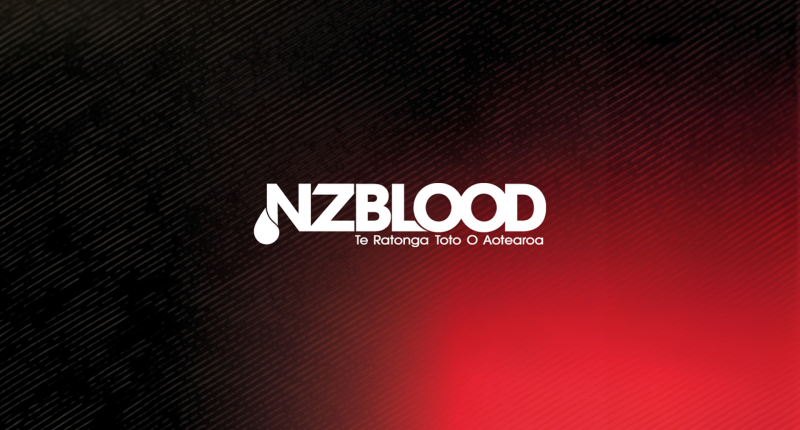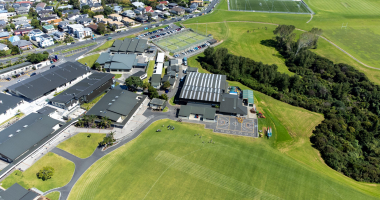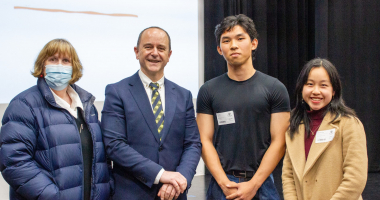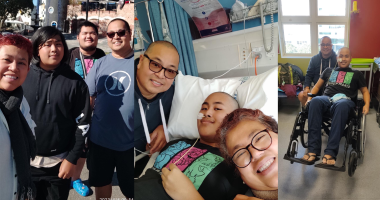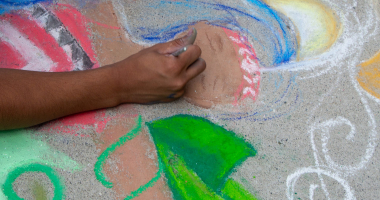Disclaimer: There may be some disturbing photos of the actual process in this article. Please proceed with caution if you are disturbed by these things.
Annually, Macleans College has a drive-through blood donation event run by New Zealand Blood Service for those who are eligible. This is a meaningful opportunity that gives students the chance to make a difference. For some people, needles and medical equipment may be quite daunting, but donating blood is a courageous act that is worth doing to help out the ones who need it most.
Well, what is so important about donating blood?
Of course, an obvious fact is that it saves lives. But do you know how far it really goes? Donated blood is used in many medical situations such as recovery from serious accidents, child-birth, surgeries and patients suffering from burns. For example, a significant 26% of blood donated goes to cancer patients to help them fight through treatments.
Oftentimes, blood donations are simply just used for conditions that rely on it, for example, chronic anaemia, autoimmune disorders or bleeding disorders.
Blood donations come in multiple forms, with the main one being fresh blood products. Donors either donate plasma, red blood cells, or platelets. Each serves their different purposes.
For example, red blood cells are used for trauma accidents, plasma is given to patients who suffer both trauma accidents and compromised immunity, and platelets are used to treat patients after cardiac surgery. Platelets can also be used to treat patients undergoing specific treatments for blood diseases or cancer.
One blood donation can save up to 3 lives!
Today, I have interviewed two senior students, Nethra Tenakoon (Year 13, Kupe), and Anthony Chen (Year 12, Rutherford) to tell us what their experience was like donating blood. They were asked the following questions:
- How did you feel while donating blood?
- Have you had any medical experience similar to this?
- How did it feel while donating blood?
- What do you think the importance of donating blood?
Nethra:
‘Honestly, I felt incredibly excited. A little bit nervous as well. I was mainly worried about the fact that I may not be able to donate, as last year I did not meet the weight requirements to donate blood. I’ve never really had negative experiences medically. I think ever since my parents began donating blood and plasma, I’ve wanted to do so myself.
The only time I could really feel anything [during the procedure] was when they first put the needle in. They [the doctors] also had to lean my chair backwards which felt kind of weird, but it was kind of crazy to watch the blood which was inside my body just seconds ago, flowing through a tube and into a bag.
I drank a whole litre of water before my donation and ate heaps of food which really helped the process of donating blood to go by quicker. I sat in my donation chair a little while after some others, and yet my bag was filled before all of theirs.
I think donating blood is a lot more than the snacks they give us and the class time it gets us out of. I’ve wanted to donate blood forever, honestly it’s been one of the things on my bucket list. Why? Because it’s such an easy way to help others, if you have the capability to safely donate blood to literally save other peoples lives- sign me up. Doing things for other people I feel is important, especially for our generation.’
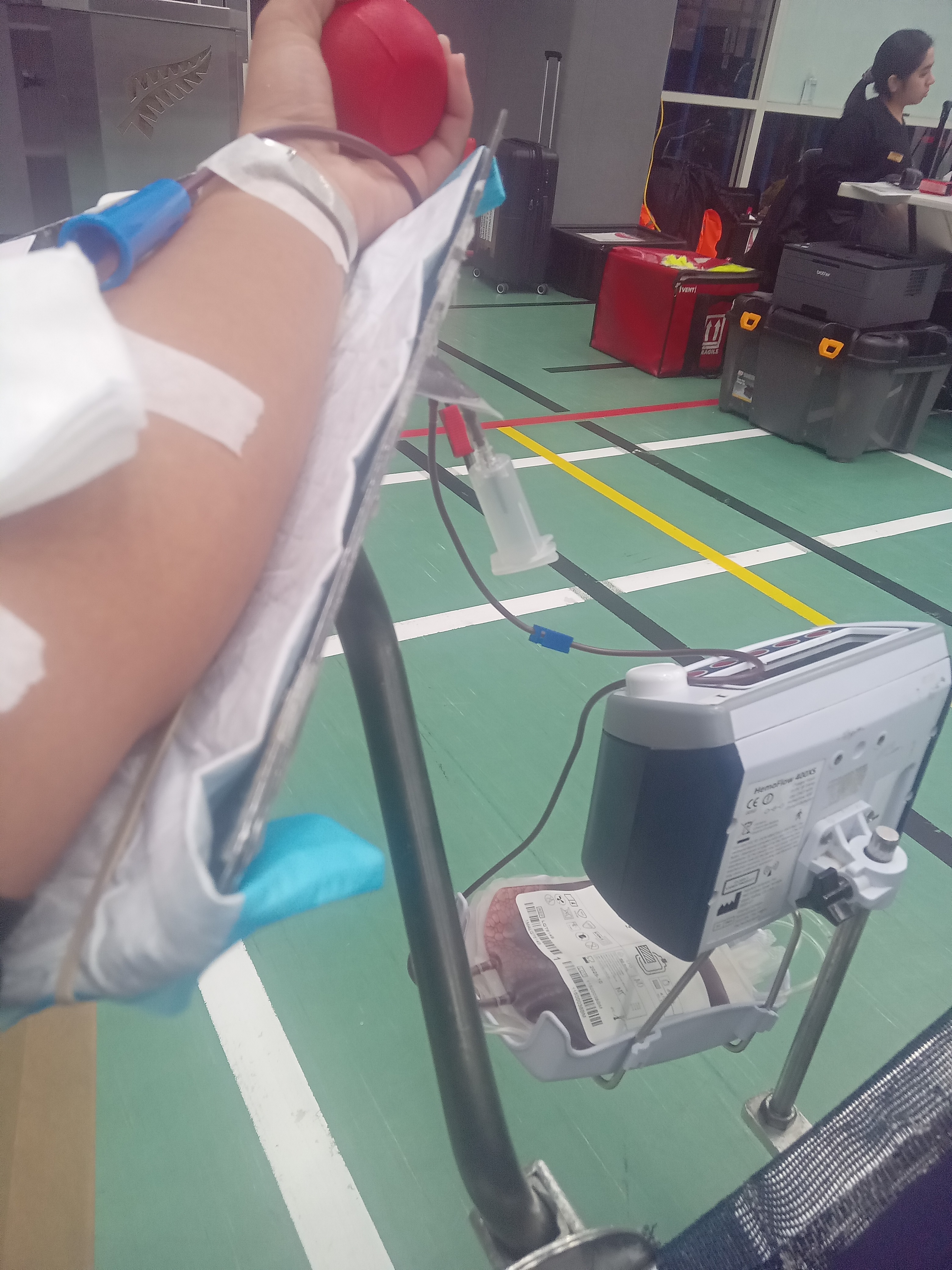
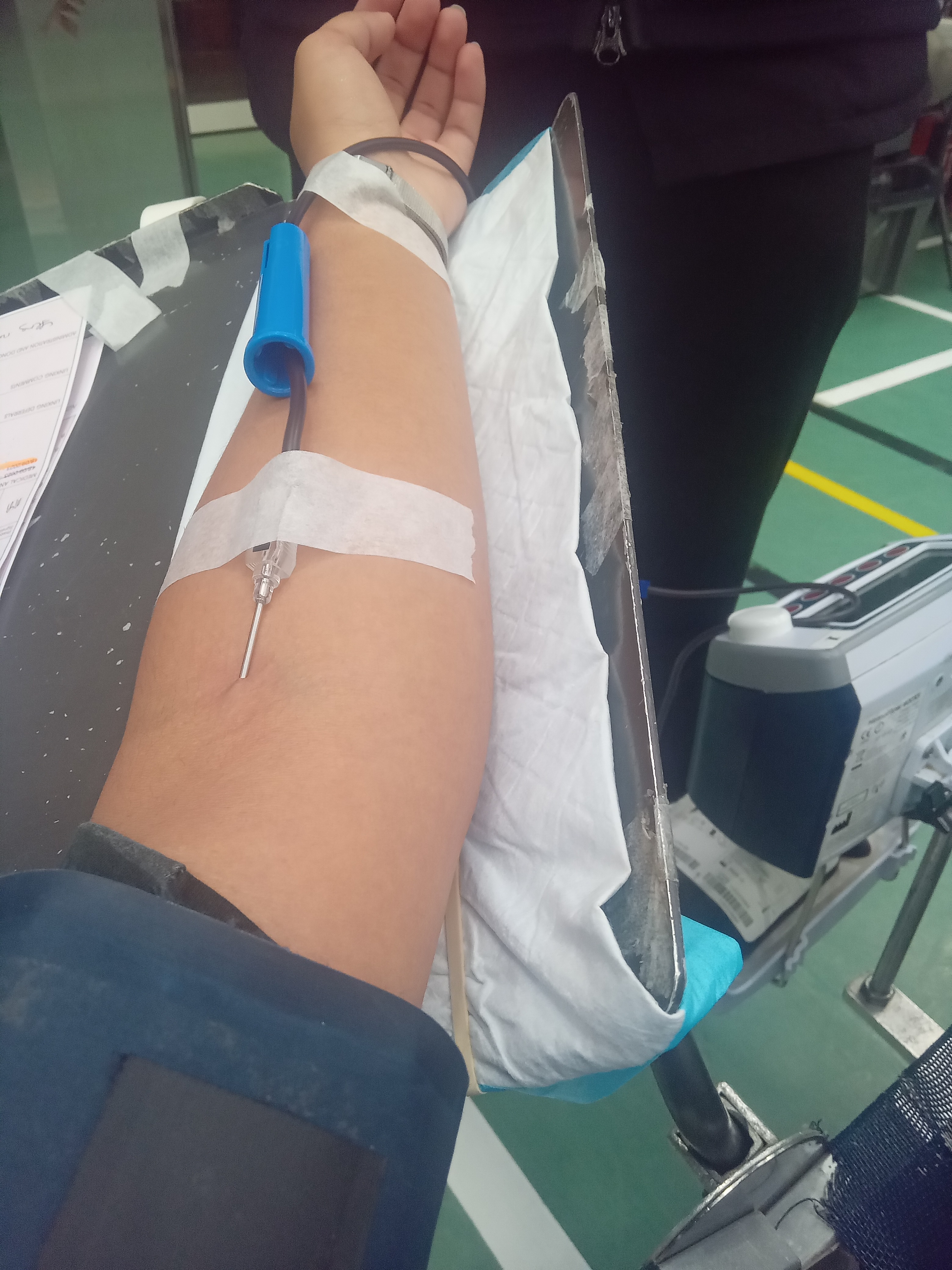
Anthony:
‘I felt nervous [at the beginning] but overall assured and happy to donate. This was my first time donating blood, so I think there was some curiosity in me to see the works in action.
Initially, the nurse got me set-up and asked the usual questions about my name and health. Then she cuffed my arm, sterilised the venipuncture site and in went the needle – the way I would describe it is a, ‘short and sharp pinch’ – that was the only pain I experienced really.
The rest was quite smooth. You could feel the warmth of your own blood travelling through the tube and into the bag while you periodically squeezed a rubber ball to keep your blood pressure up. All in all it took me six minutes and twenty seconds. Yes. I even timed it.
I think that’s enough to convince anyone to go and do it (if you're eligible). It really can be a useful thing. Think of all the injuries that happen on a day-to-day basis, especially those that involve blood loss. Blood transfusions don't just spontaneously appear from an abyss to come and save the day. They come from people like us! People who feel the need to help others in this world.
After Nethra and Anthony have donated their blood, the blood is processed through a centre and sorted into the three groups, red blood cells, plasma, and platelets. Afterwards, the blood is tested for any diseases, and making sure the blood type is right. If everything looks good, the blood is distributed to hospitals and transfused into the patients that need them.’
A massive thank you to all who those donated – you have helped many people in need.
Written by Emma Li, edited by Hope Zhang
Thumbnail a screenshot from NZ Blood website, photo provided by Nethra Tenakoon
